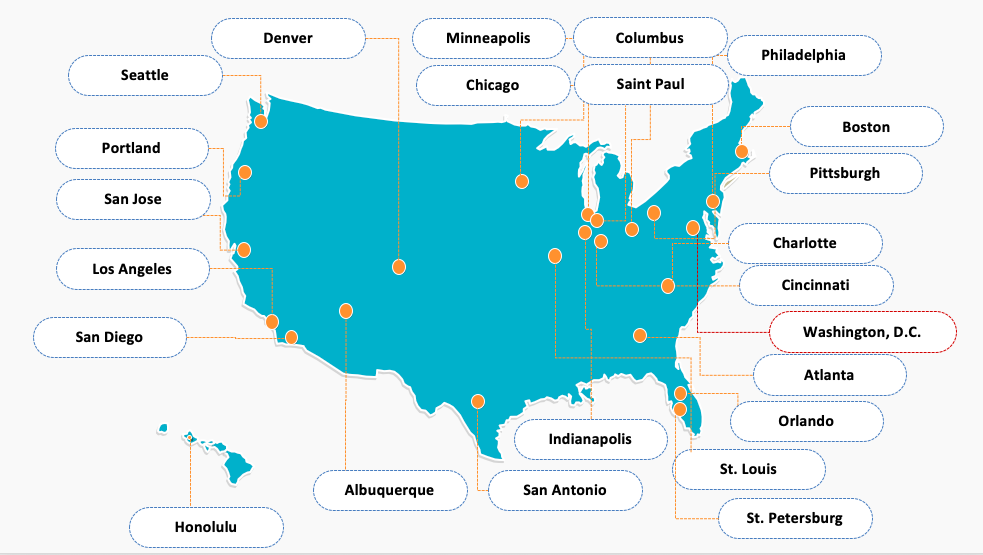American Cities Climate Challenge Recap
By: Erin Galiger
 As the first iteration of the American Cities Climate Challenge comes to a close, I wanted to reflect on just how far we’ve come in a short two and half years. The Climate Challenge brought together 25 of the largest US cities with strategic technical and local partners to reduce their greenhouse gas emissions to meet the Paris Agreement goals.
As the first iteration of the American Cities Climate Challenge comes to a close, I wanted to reflect on just how far we’ve come in a short two and half years. The Climate Challenge brought together 25 of the largest US cities with strategic technical and local partners to reduce their greenhouse gas emissions to meet the Paris Agreement goals.
While working with communities in cities across the country, we learned how important it is to be flexible with our goals and programs. Local partnerships were key to grounding our work within the needs of the community and individuals and organizations were compensated for their work and time.
While the larger goals of the Climate Challenge were tied to greenhouse gas emission reductions, as a partner we acknowledged that we also had to identify what programs could build community capacity to tackle these challenges long-term. Thus, Forth worked with cities to identify where the greatest long-term impact could be from an environmental justice lens and supported program designs that could be led by community-based organizations and were set up for sustainable funding.
For example, in St. Louis, MO, Forth was initially working with the City to increase consumer EV adoption. Early on, Forth and the City met with community-based organizations to identify community needs and how EVs fit into meeting them. We landed on a few ideas centering on low-income seniors and meal delivery. We worked with the City, senior service centers, and community-based organizations to bring fleet EVs to be used for meal delivery and as shuttles for senior centers. Forth led a DOE grant proposal to bring the St. Louis Vehicle Electrification Rides for Seniors (SiLVERS) program to fruition. Part of the program goals is to increase senior ridership with the expanded capacity of the fleet as well as increased EV awareness by seniors and the greater community. The program has a planned launch for later in Summer 2021.
I’m also particularly proud of our work with the City of Denver where the City passed a sales tax increase to fund programs reducing carbon pollution. This will raise an estimated $40 million annually to reduce the carbon pollution that exacerbates climate change. Over 50% is dedicated to maximizing investments in vulnerable, underserved communities and strengthening the fight against environmental injustice. Forth worked with the City to identify priority programs to fund within the first year of passing. The programs recommended were derived from the Denver EV Action Plan as well as the Denver Climate Action Recommendations Report, which included extensive community feedback. An electric bike incentive program tiered for different income brackets is one of the first programs to be implemented with this new funding.
The Climate Challenge was a great learning opportunity for cities and partners alike to identify what it will take to meet our climate goals. You can read more in our paper about other Climate Challenge city wins and actions cities can take to advance EV adoption.

